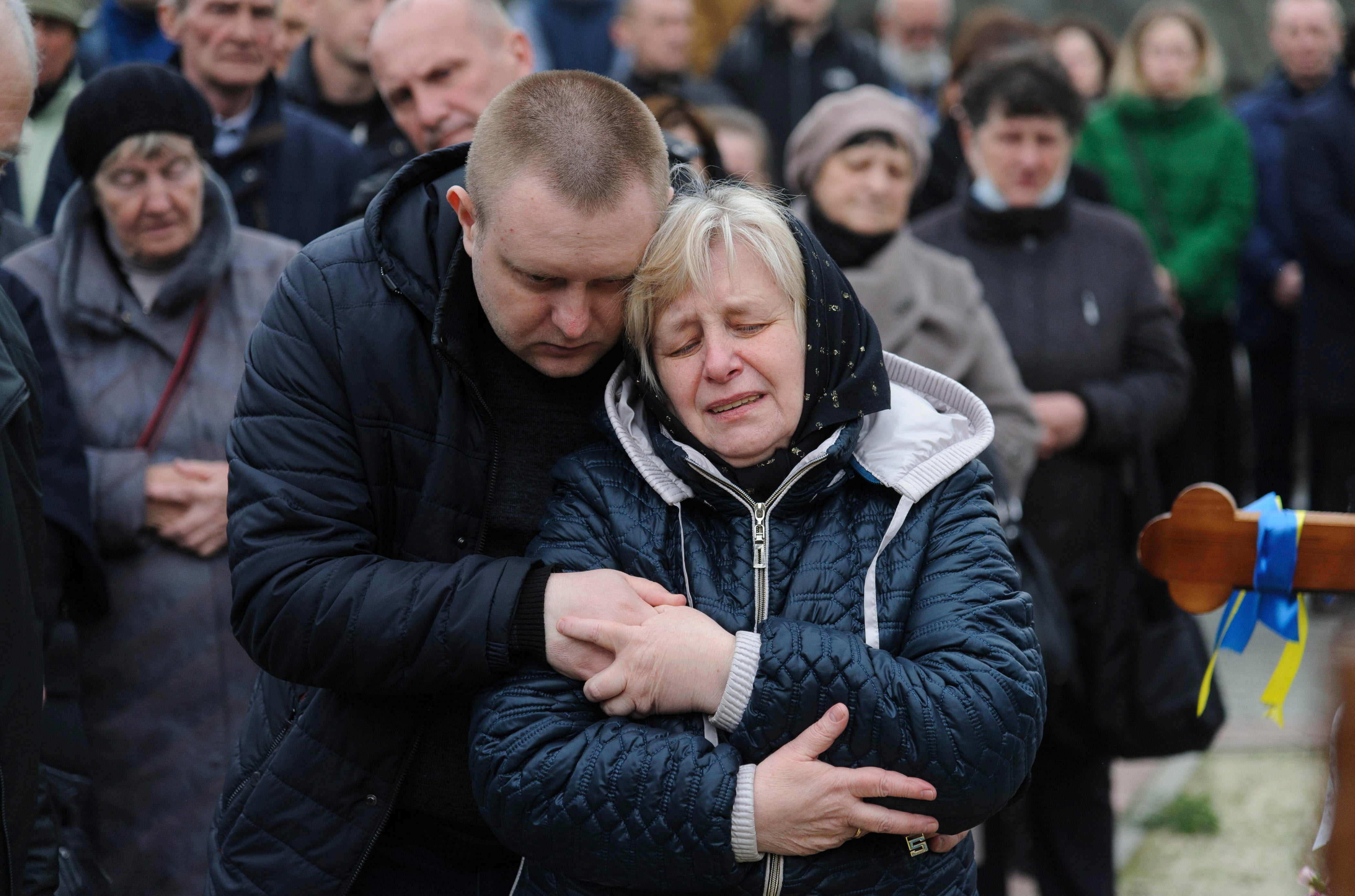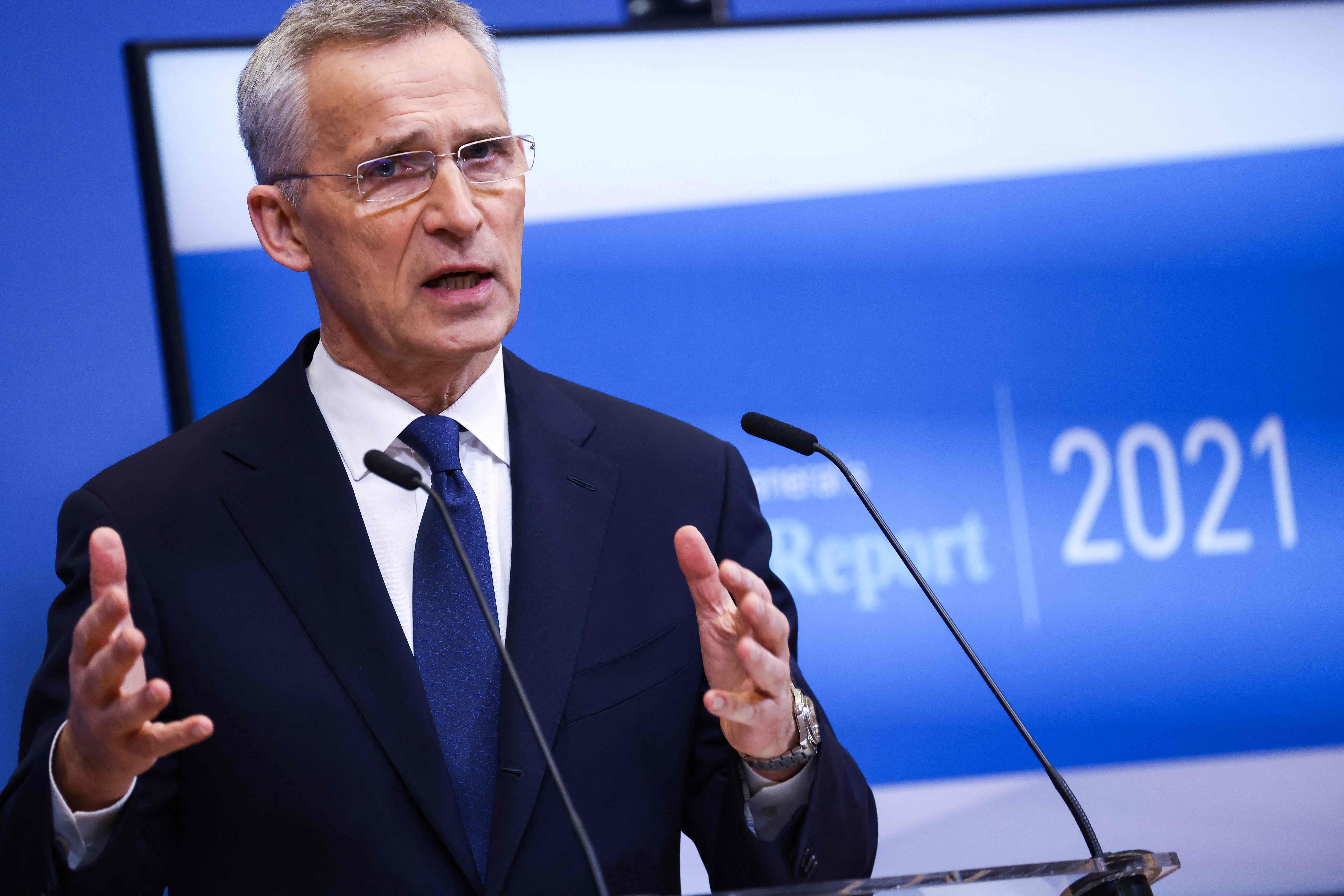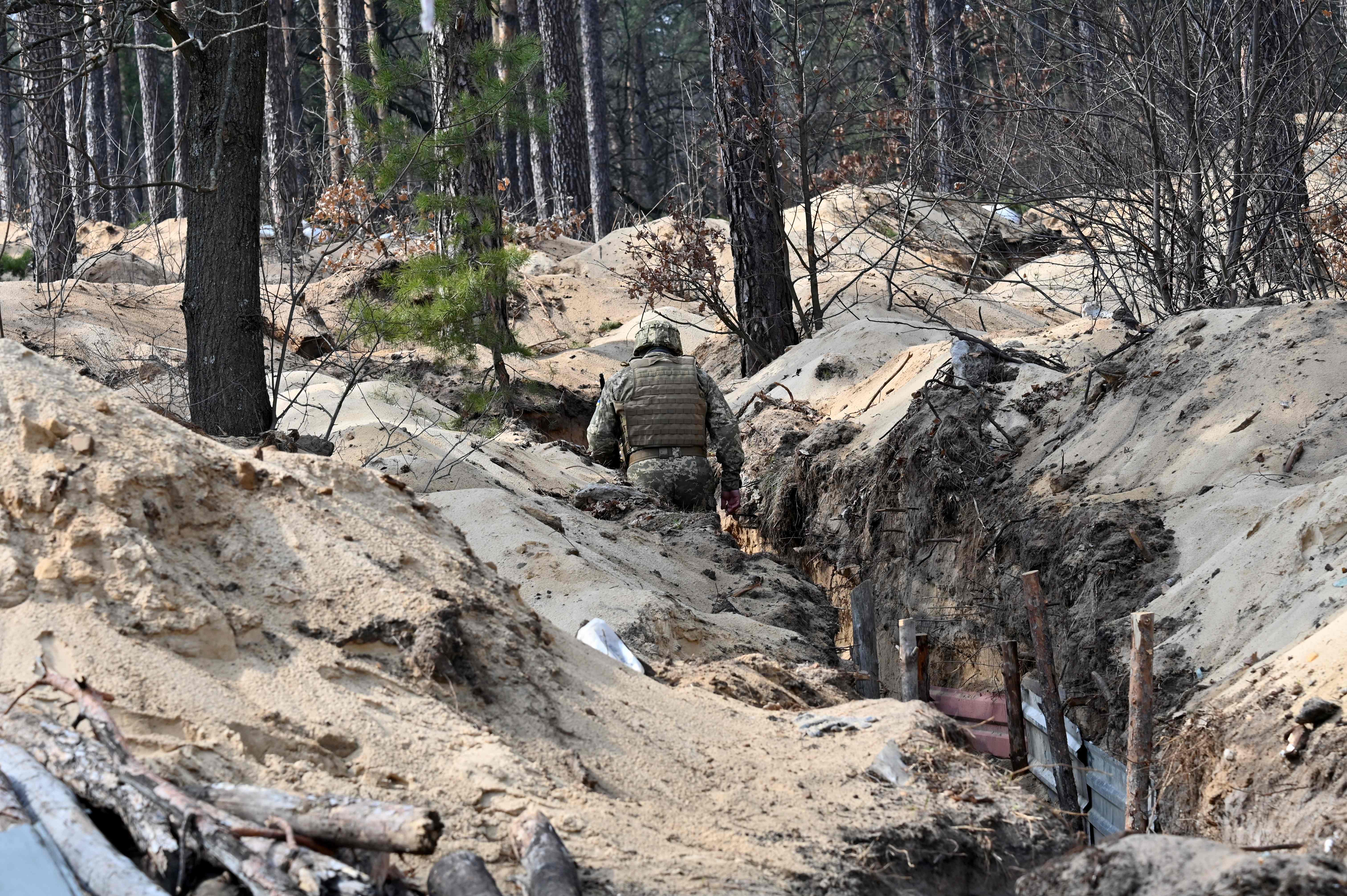Russian forces in Ukraine are regrouping not withdrawing, says Nato
Moscow repeatedly lies about its intentions, so Kremlin’s words alone cannot be trusted, says Jens Stoltenberg
Your support helps us to tell the story
From reproductive rights to climate change to Big Tech, The Independent is on the ground when the story is developing. Whether it's investigating the financials of Elon Musk's pro-Trump PAC or producing our latest documentary, 'The A Word', which shines a light on the American women fighting for reproductive rights, we know how important it is to parse out the facts from the messaging.
At such a critical moment in US history, we need reporters on the ground. Your donation allows us to keep sending journalists to speak to both sides of the story.
The Independent is trusted by Americans across the entire political spectrum. And unlike many other quality news outlets, we choose not to lock Americans out of our reporting and analysis with paywalls. We believe quality journalism should be available to everyone, paid for by those who can afford it.
Your support makes all the difference.Nato’s secretary-general has warned Ukrainians they should expect “additional [Russian] offensive actions” that will bring “even more suffering” as the Kremlin moves to deploy its troops elsewhere in the country rather than stage a promised partial withdrawal.
Speaking in Brussels, Jens Stoltenberg said Moscow did not appear to be scaling back its military operations in Ukraine.
He said Russia had “repeatedly lied” about its intentions, and echoed the sentiment conveyed by US, UK and other western leaders that the Kremlin should be judged only “on its actions, not on its words”.
Following peace talks on Tuesday, Russia promised that it would de-escalate operations near Kyiv and Chernihiv to “increase mutual trust and create conditions for further negotiations”.
But Mr Stoltenberg said: “According to our intelligence, Russian units are not withdrawing but repositioning. Russia is trying to regroup, resupply and reinforce its offensive in the Donbas region.
“At the same time, Russia maintains pressure on Kyiv and other cities.
“So we can expect additional offensive actions, bringing even more suffering.”

The secretary-general added that it was now a “more dangerous world” and said the “security environment has dramatically worsened”.
He said: “We made every effort to engage Russia in dialogue. But Moscow consistently turned us down. And ultimately decided to cut diplomatic ties.
“The Ukrainian forces are now bigger, better equipped, better trained, and better led than ever before. And they are putting their training and their equipment to use on the front lines, with courage that has inspired the world.
“We have heard the recent statements that Russia will scale down military operations around Kyiv and in northern Ukraine. But Russia has repeatedly lied about its intentions. So we can only judge Russia on its actions, not on its words.”

Ukrainian president Volodymyr Zelensky said Ukraine was seeing “a build-up of Russian forces for new strikes” on the eastern Donbas region, where Moscow-backed separatists have been battling Ukrainian forces since 2014, adding that his troops were “preparing for that”.
In addition, the UK’s Ministry of Defence reported “significant Russian shelling and missile strikes” near the northern city of Chernihiv.
Earlier, Washington said Russia had begun to reposition less than 20 per cent of its troops stationed around Kyiv.
Pentagon intelligence suggested that most had travelled north, including some into Belarus, where they could be resupplied and sent back into Ukraine.
The US also claimed that Vladimir Putin was being misinformed by advisers who are too scared to tell him about the reality of his military’s poor performance in Ukraine.
Russia responded by saying that the White House and the Pentagon had no idea what was happening in the Kremlin, and warned that the alleged misunderstanding could lead to “tragic decisions that could have very bad consequences”.
Dmitry Peskov, the Russian leader’s spokesperson, said: “Neither the state department nor the Pentagon possess the real information about what is happening in the Kremlin.
“They simply don’t understand what’s going on in the Kremlin, they don’t understand President Putin, they don’t understand the mechanism of decision-making, they don’t understand the way we work.

“It is not just regrettable, it elicits concern, because this complete lack of understanding leads to erroneous decisions, tragic decisions that could have very bad consequences.”
In other developments, Mr Putin gave the green light to drafting 134,500 new conscripts starting on Friday – a routine event, but one that will heighten concerns about the prospects for peace. Senior government figures have previously insisted that conscripts will not fight in Ukraine.
The war of words between the US and Russia came as heavy fighting raged on the outskirts of Kyiv and in other areas of the country.
Near Mariupol, meanwhile, a convoy of buses was on its way to the besieged city in another attempt to evacuate civilians who have been stuck there for weeks, many without food or water. Ukrainian deputy prime minister Iryna Vereshchuk said 45 buses were being sent.
In other areas, though, Russian soldiers were on the retreat. Ukraine’s state nuclear company, Energoatom, said many of the troops occupying the Chernobyl nuclear plant had left. The agency said Russian forces had also retreated from the nearby town of Slavutych, where Chernobyl workers live.
A new round of talks aimed at stopping the fighting is scheduled to take place via video link on Friday.
But with no signs of the war ending, the UK on Thursday tightened its sanctions regime by targeting more than a dozen Russian media figures and organisations accused of spreading propaganda and disinformation about the war.
They include Rossiya television anchor Sergey Brilev, who previously lived in Britain, Gazprom Media chief executive Aleksandr Zharov, and Alexey Nikolov, managing director of Kremlin-backed broadcaster RT.
Elsewhere, Latvia’s parliament on Thursday voted to ban public displays of the letter Z, saying it was a symbol that was used to glorify the Russian invasion of Ukraine.




Join our commenting forum
Join thought-provoking conversations, follow other Independent readers and see their replies
Comments